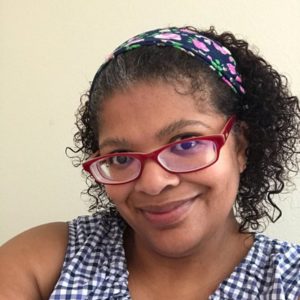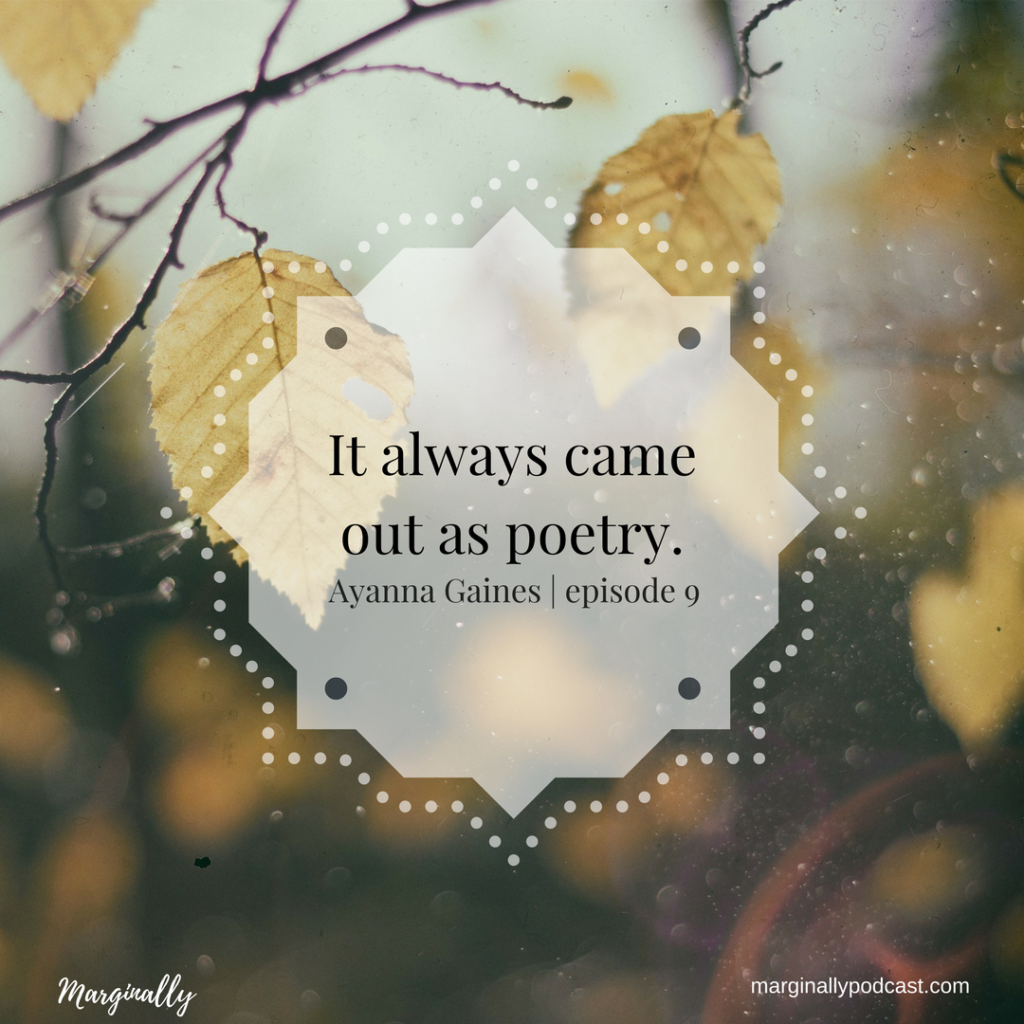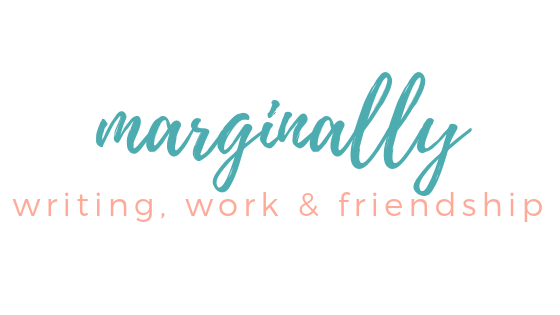Today, we’re stoked to talk to librarian Ayanna Gaines about reconnecting with her creative side, balancing work and writing, and how she sets up her space to nurture her art. We also chat National Novel Writing Month, and Olivia helps Meghan figure out how to set her Nano goals.
 Ayanna Gaines is a librarian and pop culture geek in Southern California. She’s just made the switch from academia to public libraries and is reconnecting with her creative writing side.
Ayanna Gaines is a librarian and pop culture geek in Southern California. She’s just made the switch from academia to public libraries and is reconnecting with her creative writing side.
Her academic work includes the chapter “That’s Women’s Work: Pink-Collar Professions, Gender, and the Librarian Stereotype” in The Librarian Stereotype: Deconstructing Perceptions and Presentations of Information Work” and papers on Buffy the Vampire Slayer and Gilmore Girls.
She writes poetry and is hard at work on her first novel. You can find her and her adorable kittens on Twitter @popcullibrn or Instagram @againeslibrarian
Discussed in this episode
Ruth Stone and Elizabeth Gilbert on Stone’s process:
“[W]hen she was growing up in rural Virginia, she would be out working in the fields, and she said she would feel and hear a poem coming at her from over the landscape. And she said it was like a thunderous train of air. And it would come barreling down at her over the landscape.And she felt it coming, because it would shake the earth under her feet. She knew that she had only one thing to do at that point, and that was to, in her words, “run like hell.” And she would run like hell to the house and she would be getting chased by this poem, and the whole deal was that she had to get to a piece of paper and a pencil fast enough so that when it thundered through her, she could collect it and grab it on the page. And other times she wouldn’t be fast enough, so she’d be running and running, and she wouldn’t get to the house and the poem would barrel through her and she would miss it and she said it would continue on across the landscape, looking, as she put it “for another poet.” And then there were these times — this is the piece I never forgot — she said that there were moments where she would almost miss it, right? So, she’s running to the house and she’s looking for the paper and the poem passes through her, and she grabs a pencil just as it’s going through her, and then she said, it was like she would reach out with her other hand and she would catch it. She would catch the poem by its tail, and she would pull it backwards into her body as she was transcribing on the page. And in these instances, the poem would come up on the page perfect and intact but backwards, from the last word to the first.”

